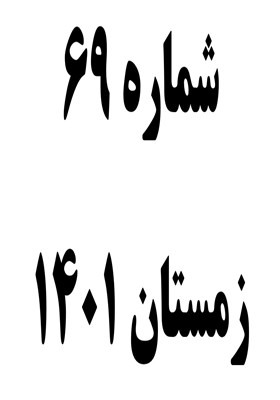سیر تاریخی دانش نقد در اروپا
محورهای موضوعی : مباحث معرفتی و روش شناختی و تاریخ پژوهی
1 - گروه آموزشی زبان و ادبایت فارسی، دانشگاه ازاد اسلامی شاهرود، واحد شاهرود، ایران
کلید واژه: تاریخ, نقد, اروپا, نقادی, مکتبها,
چکیده مقاله :
همزمان با پویشهای فلسفی و ادبی در یونان باستان، سخن پردازان حوزه تمدن غرب ، به دانش نقد توجه نشان دادند و به سنجش و داوری در باره محتوا و پیام سروده ها و نوشته های ادیبان پرداختند. سه فیلسوف نامدار یعنی سقراط، افلاطون و ارسطو با تحلیل شعر و نقد گفتار، مسائل نقد ادبی را قاعده مند ساختند و به تدریج، فن نقد در ادبیات اروپا جایگاهی ممتاز یافت. این نوشتار با رویکرد توصیفی- تحلیلی بر آن است تا در نگرشی گذرا به تامل در روند جریان نظریه پردازی در حوزه نقد بپردازد و تطور و تعالی دانش نقد در تاریخ ادبیات غرب را تصویرسازی کند. نتیجه آن که نقادی با فلسفه آغاز شد و پرسشگری فلاسفه یونان، شاخصی برای ارزیابی متون ادبی گردید تا جایی که در دوره نوزائی، متون کلاسیک نیز در بوته نقد قرار گرفت و با چنین تفکر و میراثی، مکاتب نقد نوین پدید آمدند. مکاتبی که مبتنی بر ترکیب برترین آراء سازنده و روشنگرانه با تنوع جلوه های خود، ادبیات را به مثابه دانشی نظام مند و مستقل معرفی می کند.
At the same time as the philosophical and literary campaigns in ancient Greece, the rhetoricians of the western civilization basin paid attention to critical knowledge and evaluated and judged the content and message of the poems and writings of writers. Three famous philosophers, Socrates, Plato, and Aristotle, by analyzing poetry and speech criticism, made the issues of literary criticism a rule, and gradually, the art of criticism found a privileged place in European literature. This article, with a descriptive-analytical approach, aims to reflect on the flow of theorizing in the field of criticism in a passing perspective and illustrate the development and excellence of the knowledge of criticism in the history of Western literature. The result of the research shows that criticism began with philosophy and the questioning of Greek philosophers became an indicator for the evaluation of literary texts to the point where in the period of infancy, classical texts were also criticized and with such thinking and legacy, new schools of criticism emerged. Schools that are based on the combination of the most constructive and enlightened opinions and with their various manifestations introduce literature as a systematic and independent knowledge
_||_

